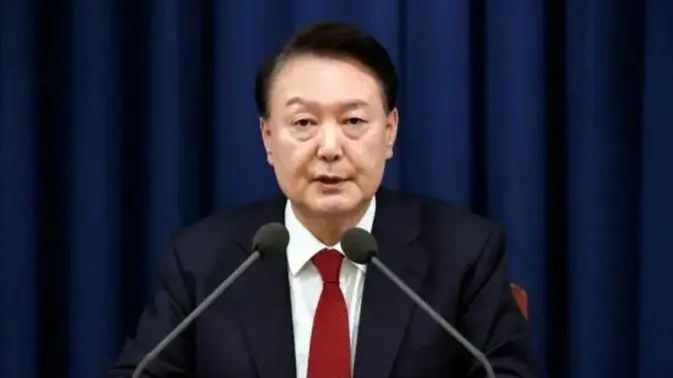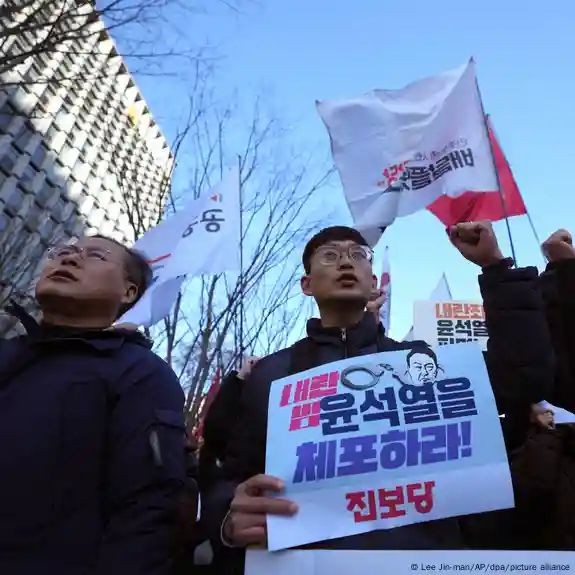By Nakiwala Barbra
South Korea’s opposition parties have submitted a bill to impeach President Yoon Suk Yeol following his controversial and short-lived attempt to impose martial law. The move has sparked political turmoil, with significant diplomatic and financial repercussions for the nation.
Late Tuesday night, President Yoon declared martial law during a televised address, accusing “anti-state” forces of obstructing his administration and harboring sympathy for North Korea.
The announcement prompted widespread protests and heightened tensions across the country. Demonstrators flooded the streets of Seoul, holding signs demanding Yoon’s resignation and arrest.

The President’s decision faced immediate backlash from lawmakers. Opposition legislators physically forced their way into the National Assembly, bypassing police and military personnel, and voted unanimously to overturn the martial law declaration. Yoon backtracked within hours, formally lifting martial law during a Cabinet meeting at around 4:30 a.m. Wednesday.
Despite the reversal, the fallout has been severe. Six opposition parties, representing a broad coalition, introduced the impeachment bill early Wednesday morning, citing Yoon’s “reckless abuse of power” as grounds for his removal. They argued that his actions undermined the country’s democracy and rule of law.

Diplomatic and economic consequences are already emerging from the crisis. International markets reacted negatively to the turmoil, with South Korea’s currency and stock indices taking a hit. Allies of South Korea have expressed concern over the political instability
As Seoul awoke to a cold but sunny Wednesday, protests continued across the city. The opposition, joined by civil society groups, intensified their calls for President Yoon’s resignation, signaling a protracted political showdown that could reshape South Korea’s leadership and governance.

